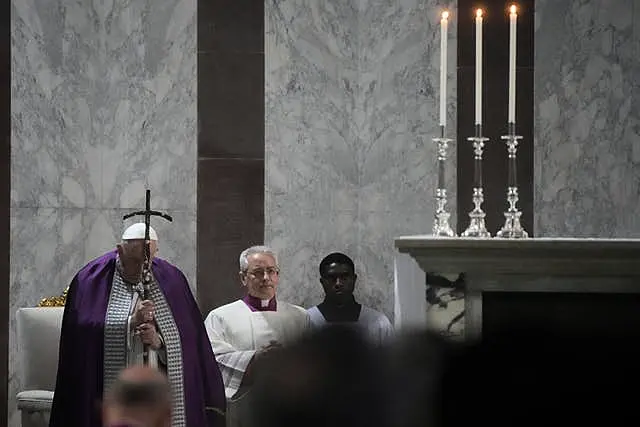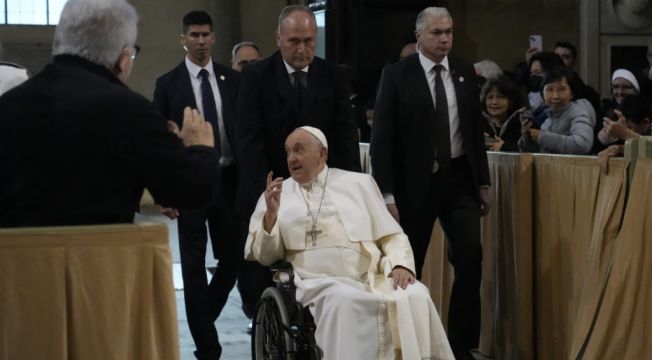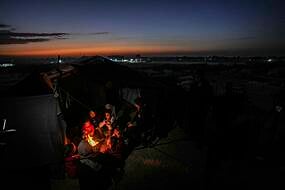Pope Francis ushered in the annual Christian Lenten period of sacrifice and reflection by encouraging people on Ash Wednesday to cast off what he called the “dictatorship” of heavy agendas and superficial needs.
Due to a knee problem, Francis did not join in the traditional Ash Wednesday procession between two churches on Rome’s Aventine Hill.
Instead, he presided over an early evening mass after the procession in hilltop St Sabina Basilica, where faithful gathered for the Catholic Church’s ritual distribution of ashes that are meant as reminders of people’s mortality.
Lent marks a period that can include fasting, prayer and works of charity in preparation for Easter, which this year is on April 9.

During the service, ashes were sprinkled on Francis’ bowed head while a choir sang hymns.
Lent is the time to “drop the pretence of being self-sufficient and the need to put ourselves at the centre of things, to be the top of the class, to think that by our own abilities we can succeed in life and transform the world around us,” the Pope said in his homily.
“The ashes we receive this evening tell us that every presumption of self-sufficiency is false and that self-idolatry is destructive, imprisoning us in isolation and loneliness,” he said.
Instead, Lent serves “to remind ourselves that the world is bigger than our narrow personal needs, and to rediscover the joy, not of accumulating material goods, but of caring for those who are poor and afflicted”, Francis said.
“Let us take stock of ourselves, to free ourselves from the dictatorship of heavy schedules, crowded agendas and superficial needs, and choose the things that truly matter,” the pontiff said.
In his homily, Francis circled back to an overarching theme of his nearly 10-year-old papacy – attention to the individuality of those in need, particularly the poor.
“Alms-giving is not a hasty gesture performed to ease our conscience,” the Pope said. “Rather, it is a way of touching the sufferings of the poor with our own hands and heart.”
Holy Week services, starting on April 2 with Palm Sunday and including the traditional Way of the Cross procession at the Colosseum, draw large crowds of pilgrims and tourists to Rome and the Vatican.







